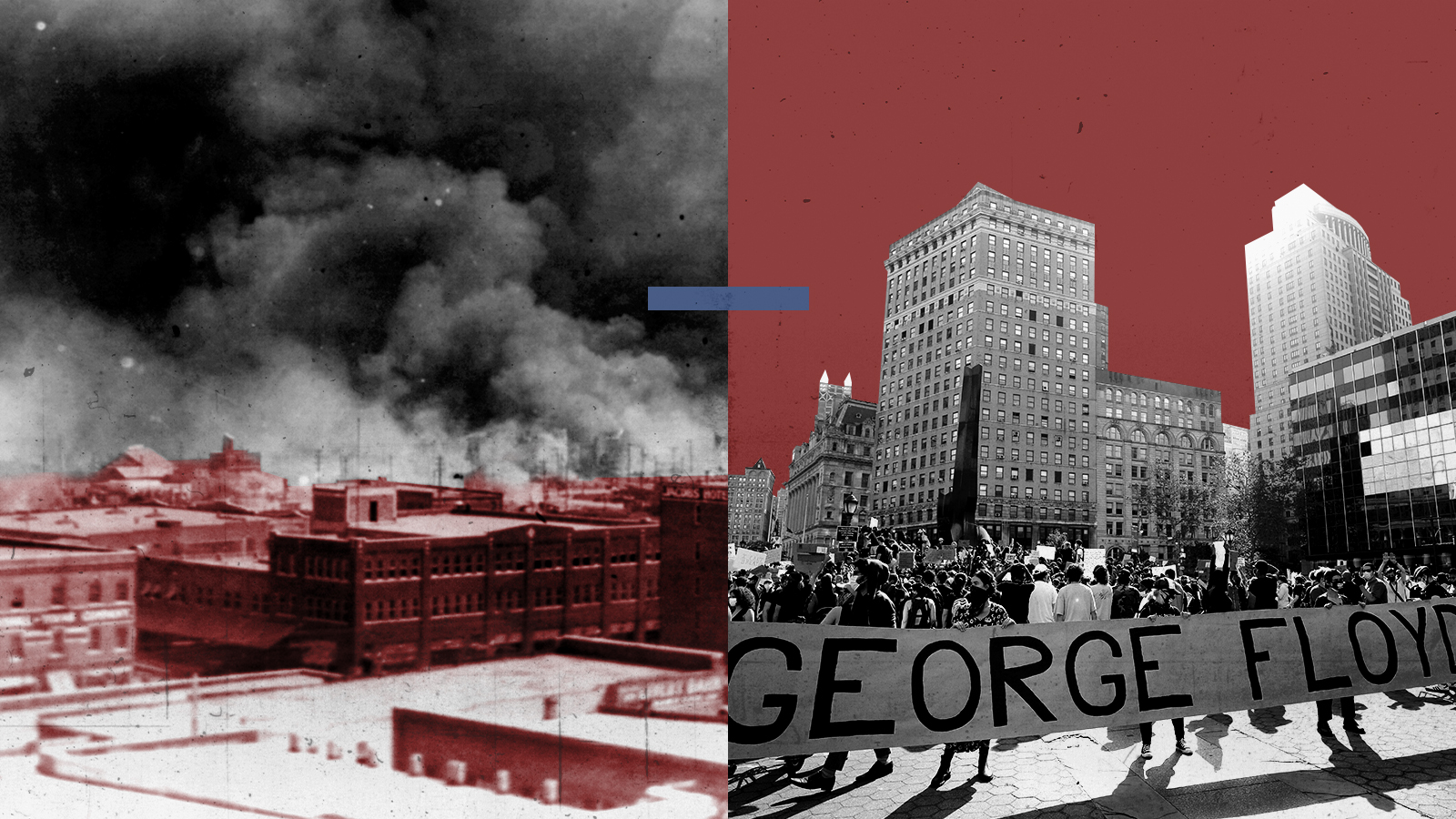How will George Floyd be remembered in 100 years?


A free daily email with the biggest news stories of the day – and the best features from TheWeek.com
You are now subscribed
Your newsletter sign-up was successful
It doesn't feel like a coincidence that the first anniversary of George Floyd's death under Derek Chauvin's knee arrives on the same week as the centenary of the Tulsa Massacre, in which as many as 300 Black people were killed. American history is full of racial horrors — it may be impossible to pick a week that doesn't coincide with some act of terror in our collective past.
The Tulsa experience tells us something important as the country continues to move on from Floyd's death: The pain of racial trauma never really ends, and the ramifications can ripple out endlessly.
Wheaton College researchers have documented some of those ripples. Before the massacre, Black Tulsans had higher rates of homeownership, marriage, and employment than their peers in other cities. After the violence, they fell behind, and many of the city's more prosperous Black residents left town entirely, upending the city's social structure. "In just 24 hours, the promising trajectory of an entire community can be significantly altered in ways that last for generations," the researchers wrote.
The Week
Escape your echo chamber. Get the facts behind the news, plus analysis from multiple perspectives.

Sign up for The Week's Free Newsletters
From our morning news briefing to a weekly Good News Newsletter, get the best of The Week delivered directly to your inbox.
From our morning news briefing to a weekly Good News Newsletter, get the best of The Week delivered directly to your inbox.
In Congress last week, one of the survivors — 107-year-old Viola Fletcher — testified that she is still haunted by what she witnessed as a young child. "I still see Black businesses being burned," she said. "I still hear airplanes flying overhead. I hear the screams. I have lived through the massacre every day."
As in Tulsa, the ongoing ramifications of Floyd's death will be both personal and societal, as well as long-lasting. Millions of Black Americans have been traumatized by the videos of the crime, and they will carry that pain forward. Americans are still working out some of the other possibilities. Will we remake America's police and our relationship to them? Or will the "Blue Lives Matter" backlash win out? Future generations will live with our choices.
There's a widespread notion in America that we can and should leave the bad stuff behind — that (say) yes, the Founders were slavers, but they also wrote the Declaration of Independence, and that's where our focus should be. Such happy talk amounts to an act of erasure. Like Tulsa, Floyd's death will leave a lasting mark on the country. What's unsettled is whether we'll be left with scars that signify healing, or with an ugly, open wound.
A free daily email with the biggest news stories of the day – and the best features from TheWeek.com
Joel Mathis is a writer with 30 years of newspaper and online journalism experience. His work also regularly appears in National Geographic and The Kansas City Star. His awards include best online commentary at the Online News Association and (twice) at the City and Regional Magazine Association.
-
 Political cartoons for February 16
Political cartoons for February 16Cartoons Monday’s political cartoons include President's Day, a valentine from the Epstein files, and more
-
 Regent Hong Kong: a tranquil haven with a prime waterfront spot
Regent Hong Kong: a tranquil haven with a prime waterfront spotThe Week Recommends The trendy hotel recently underwent an extensive two-year revamp
-
 The problem with diagnosing profound autism
The problem with diagnosing profound autismThe Explainer Experts are reconsidering the idea of autism as a spectrum, which could impact diagnoses and policy making for the condition
-
 Epstein files topple law CEO, roil UK government
Epstein files topple law CEO, roil UK governmentSpeed Read Peter Mandelson, Britain’s former ambassador to the US, is caught up in the scandal
-
 Iran and US prepare to meet after skirmishes
Iran and US prepare to meet after skirmishesSpeed Read The incident comes amid heightened tensions in the Middle East
-
 Israel retrieves final hostage’s body from Gaza
Israel retrieves final hostage’s body from GazaSpeed Read The 24-year-old police officer was killed during the initial Hamas attack
-
 China’s Xi targets top general in growing purge
China’s Xi targets top general in growing purgeSpeed Read Zhang Youxia is being investigated over ‘grave violations’ of the law
-
 Panama and Canada are negotiating over a crucial copper mine
Panama and Canada are negotiating over a crucial copper mineIn the Spotlight Panama is set to make a final decision on the mine this summer
-
 Why Greenland’s natural resources are nearly impossible to mine
Why Greenland’s natural resources are nearly impossible to mineThe Explainer The country’s natural landscape makes the task extremely difficult
-
 Iran cuts internet as protests escalate
Iran cuts internet as protests escalateSpeed Reada Government buildings across the country have been set on fire
-
 US nabs ‘shadow’ tanker claimed by Russia
US nabs ‘shadow’ tanker claimed by RussiaSpeed Read The ship was one of two vessels seized by the US military
